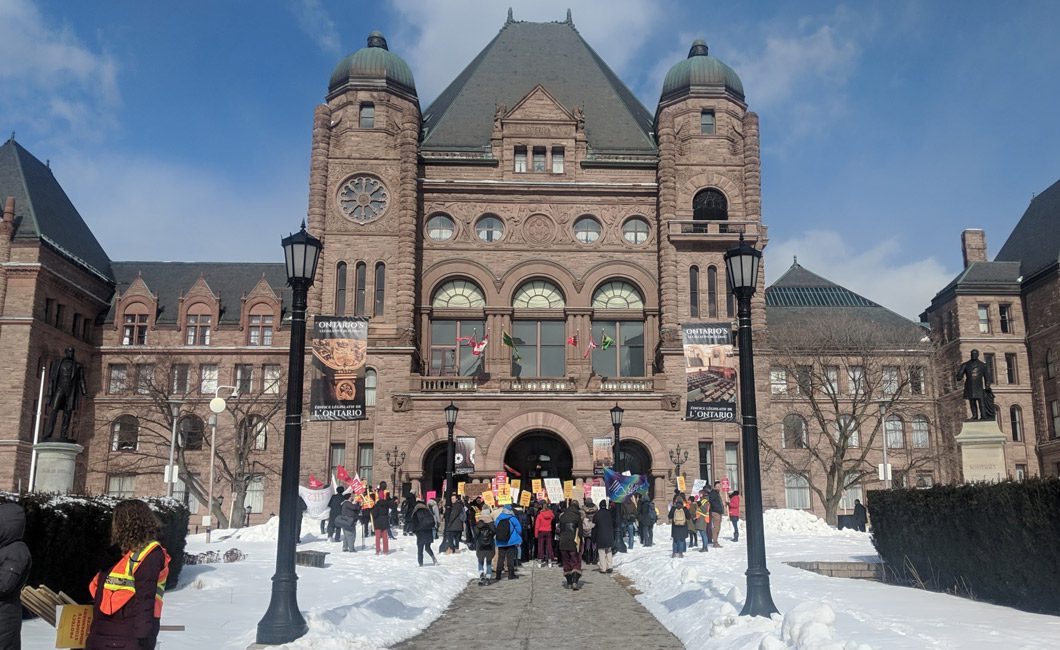As MPPs headed back to Queen’s Park on Tuesday, students gathered to protest upcoming changes to the Ontario Student Assistance Program (OSAP).
OSAP is a financial-aid program that helps students and their families pay for post-secondary education through grants and loans.
On Jan. 17, Ontario Premier Doug Ford put forward changes, including the elimination of free tuition grants, an increased threshold to apply as an independent student, and the elimination of a six-month grace period on added interest upon graduation.
Students are marching to Queen's Park #OSAP #ONPoli #CJRL715 pic.twitter.com/UXfG6CXH2B
— Mathilde Augustin (@Mat_Augustin) February 19, 2019
Gaelan Kirby, a student at Carleton University and an organizer at the Ontario Student Action Network (OSAN), says eliminating grants will significantly increase the amount of debt that students graduate with.
“I have around $30,000 in debt currently, and I will have $3,000 in grants taken away next year,” says Kirby. “If I was starting my first year, that would be (an added) $12,000 over a four-year period.”
Sami Pritchard, national executive representative to the Canadian Federation of Students (CFS), says the organization is fighting for free education for all, in Ontario and across the country.
Protestors chant, “education is our right, we will not give up the fight.” pic.twitter.com/02nHcgrNi3
— Anya (@_anya7) February 19, 2019
Connor Breckley, an engineering master’s student from Carleton, says he supports free tuition for post-secondary students.
“Right now we’re on the defensive with the government,” says Breckley. “To preserve what we have.”
Along with these changes, Ford’s government announced a 10 per cent decrease in tuition fees for domestic students. No additional public funding will be provided to colleges and universities to offset the budget cuts ensuing.
As part of the tuition decrease, colleges and universities will ask their students to manually opt in to additional fees that currently fund campus organizations. Pritchard, of the CFS, says this will put student services in a precarious position.
“Student unions offer food bank services, health and dental plans, academic appeals, advocate for better mental health and sexual violence support,” says Pritchard. “And it should be noted that students cannot always predict that they will need access to particular student services.”
OSAN will be organizing call-ins and write-ins in the coming months, and as the weather warms up, they expect protests will grow in attendance.

